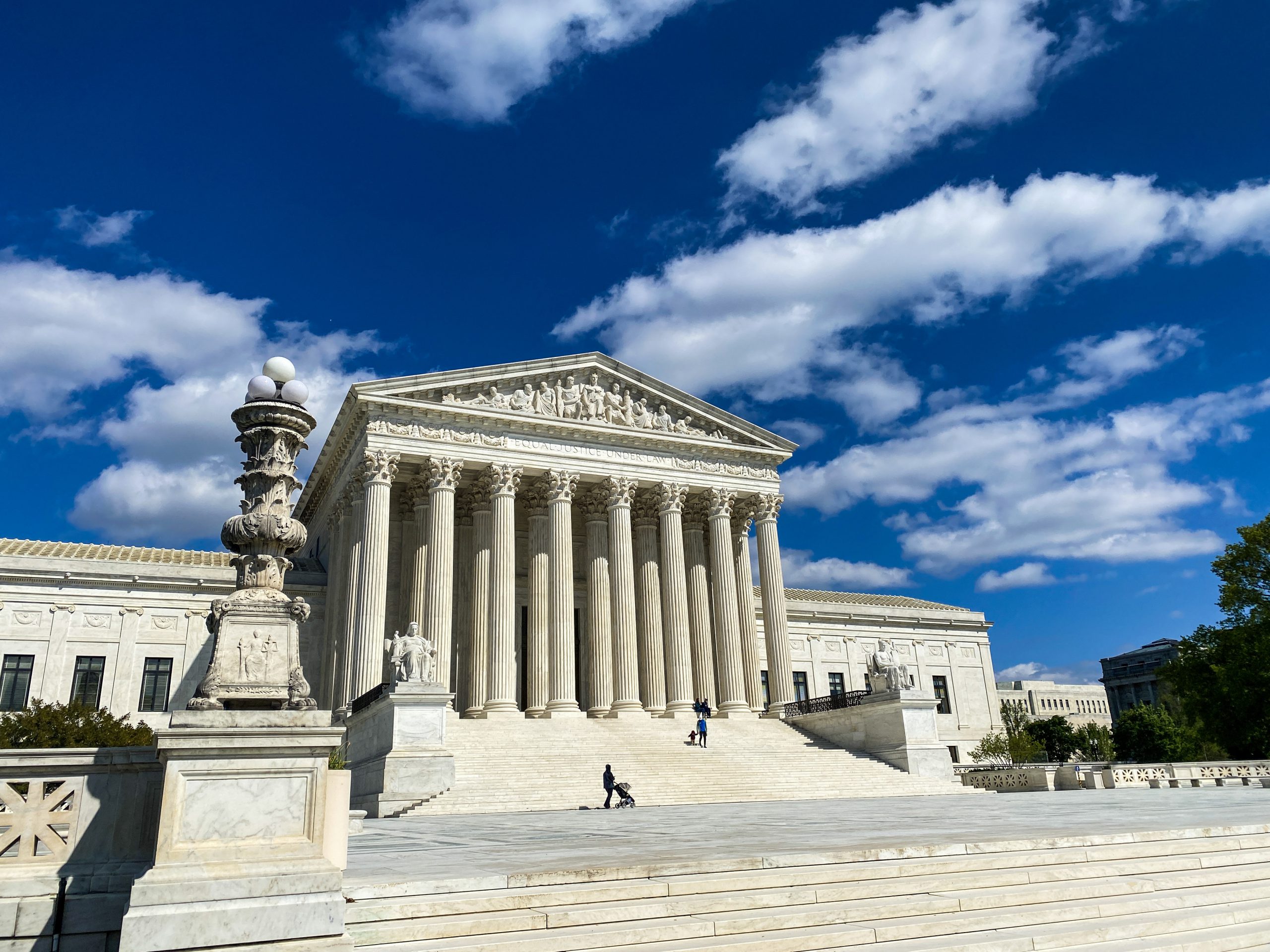Indianz.Com > News > Supreme Court returns to in-person arguments as justice tests positive for COVID-19

Supreme Court returns to in-person arguments as justice tests positive for COVID-19
Friday, October 1, 2021
Indianz.Com
The U.S. Supreme Court is returning to in-person arguments for the first time since the onset of the COVID-19 pandemic. But the nation’s highest court is running into snags that have plagued other institutions grappling with the ongoing health crisis.
The court on Friday morning announced that Justice Brett Kavanaugh tested positive for COVID-19, the disease caused by the coronavirus. He has been fully vaccinated since January and is showing no symptoms, according to a press release.
“Justice Kavanaugh’s wife and daughters are also fully vaccinated, and they tested negative on Thursday,” the court said.
As a result, Kavanaugh and his wife did not attend a ceremonial swearing-in for Justice Amy Coney Justice, who is the newest member of the court. The investiture ceremony, as it is known, took place on Friday morning.
The court, however, did not say whether Kavanaugh will attend in-person arguments on Monday. The justices are set to hear their first two cases on October 4, marking the start of their October 2021 term.
In-person arguments are also scheduled for Tuesday and Wednesday, with two taking place on each day. Additionally, the court will hear four more cases during the week of October 11.
No Indian law cases are currently on the docket. But tribes and their advocates are paying close attention to a number of petitions being presented to the justices, particularly one that will determine whether key provisions of the Indian Child Welfare Act are legal.
The highly-charged and complex case, commonly known as Brackeen, is the subject of the second season of This Land, an award-winning documentary podcast reported by journalist Rebecca Nagle, a citizen of the Cherokee Nation.
Following the onset of the COVID-19 pandemic in March 2020, the court closed its doors to the public. Oral arguments in every case took place via teleconference and were broadcast live for the first time.
During the virtual sessions, the court heard three significant Indian law cases: McGirt v. Oklahoma on May 11, 2020; United States v. Cooley on March 23, 2021; and a dispute COVID-19 funding known as Yellen v. Confederated Tribes of the Chehalis Reservation on April 29, 2021.
The outcome of McGirt confirmed that the reservation promised to the Muscogee Nation by treaty continues to exist. The landmark case has resulted in the recognition of Indian Country in the eastern part of Oklahoma, although the state has since petitioned the Supreme Court to overturn the ruling.
The decision in Cooley marked another victory for tribal interests. The Supreme Court confirmed that tribal law enforcement can stop and even search non-Indians who are suspected of criminal activity despite lacking criminal jurisdiction over non-Indians.
The ruling in Chehalis represented the only loss of the three cases. Over the objections of sovereign tribal nations, the Supreme Court ruled that Alaska Native for-profit corporations are entitled to COVID-19 relief, resulting in the distribution of about $543 million to entities that serve Native shareholders and Native communities in Alaska.
For all upcoming hearings, the Supreme Court will be providing a live audio feed on its website. An archived version, as well as a transcript, will be provided on the following day of arguments, according to a press release.
The court remains otherwise closed to the public.
Indianz.Com Audio
Jam out with the
justices! Listen to lawyers! No, really, these are important U.S.
Supreme Court cases.
Search
Filed Under
Tags
More Headlines
President Trump vetoes tribal homelands bill with swipe at trust relationship
Native America Calling: The Pleiades star cluster ushers in winter story season
NAFOA: 5 Things You Need to Know This Week (January 5, 2026)
Native America Calling: Native in the Spotlight with Elaine Miles
Native America Calling: Gearing yourself up for 2026
Statement: Chairman of Miccosukee Tribe on veto of homelands bill
Native America Calling: Lumbee Nation secures its sovereign status
Chuck Hoskin: Cherokee Nation builds on tradition with technology
Native America Calling: The Year in Native News
Native America Calling: Native music in 2025
Native America Calling: Amid Greenland’s independence push, Denmark accounts for colonial blunders
Senate Committee on Indian Affairs sets business meeting and hearing
Native America Calling: Saving historic architecture and other important places
VIDEO: H.R.2400, the Pit River Land Transfer Act of 2025
VIDEO: H.R.3620, the Southcentral Foundation Land Transfer Act of 2025
More Headlines
Native America Calling: The Pleiades star cluster ushers in winter story season
NAFOA: 5 Things You Need to Know This Week (January 5, 2026)
Native America Calling: Native in the Spotlight with Elaine Miles
Native America Calling: Gearing yourself up for 2026
Statement: Chairman of Miccosukee Tribe on veto of homelands bill
Native America Calling: Lumbee Nation secures its sovereign status
Chuck Hoskin: Cherokee Nation builds on tradition with technology
Native America Calling: The Year in Native News
Native America Calling: Native music in 2025
Native America Calling: Amid Greenland’s independence push, Denmark accounts for colonial blunders
Senate Committee on Indian Affairs sets business meeting and hearing
Native America Calling: Saving historic architecture and other important places
VIDEO: H.R.2400, the Pit River Land Transfer Act of 2025
VIDEO: H.R.3620, the Southcentral Foundation Land Transfer Act of 2025
More Headlines